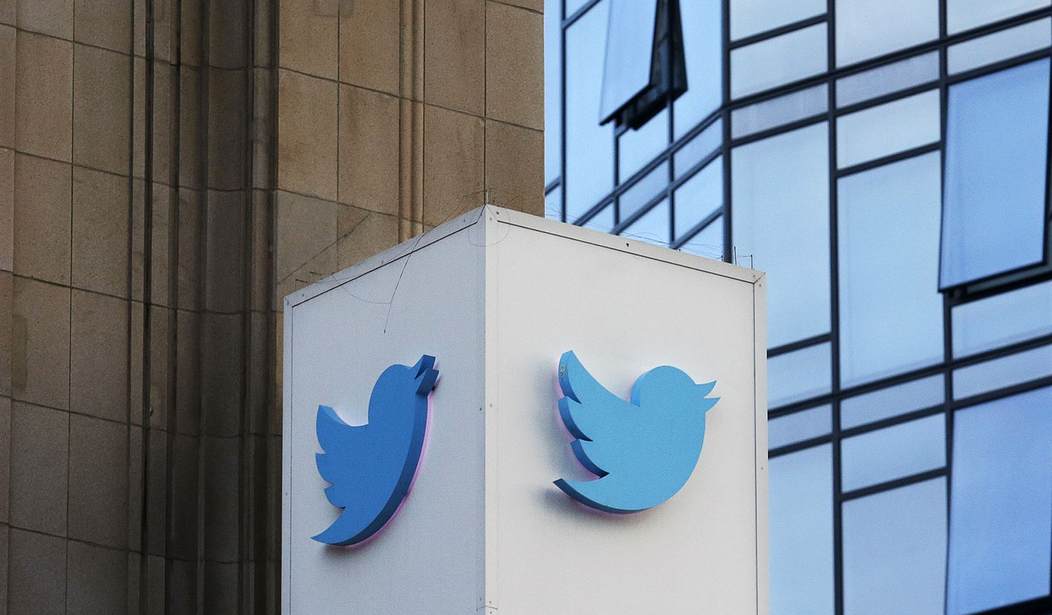An appropriately Twitteresque meme circulated recently on that platform: Write a sad story in just three words. This was an homage to Ernest Hemingway, who, challenged to write a sad story in only six words, grabbed the nearest blank paper and scrawled: "For sale: baby shoes. Never worn." Or so the story goes. It's too good to check. Responses to the three-word challenge ran the gamut from "People trust CNN," to "Trump elected again." I suggested, "Twitter represents America."
It would be a sad story if it were true, but there are many reasons to doubt that Twitter represents anything other than a cacophony of curmudgeons.
Consider the Biden touching imbroglio. For days and days, Twitter and other social media were alight with Biden hashtags and hot takes. The phrase "creepy Joe Biden" generated half a million Google searches. In part in response to this, cable commentators speculated about whether Biden's #MeToo moment (which it really wasn't) would prove fatal to his potential presidential run.
Or not. A number of surveys this week show that voters in general are in a different world from social media. The key constituency for a Biden bid -- Democratic primary voters -- are untroubled by reports of his excessive touching. A Quinnipiac poll of California Democrats (California has an early primary next year), found that 71 percent did not regard the touching as a serious issue. That included 67 percent of women. A Morning Consult poll found that Biden is a double-digit favorite among Democrats for the nomination, and enjoys a 14-point lead in early voting states. A separate poll of Iowa Democrats also put Biden at the top of the list.
There is a message here for candidates and also for ordinary Twitter denizens. It's tempting for candidates to pitch their messages to the Twitter audience. It can provide a sugar high of immediate positive feedback. And who doesn't love sugar? But as the Hidden Tribes project has found, the Democrats who post to social media like Twitter are markedly to the left of Democrats as a whole. As Nate Cohn and Kevin Quealy break it down in The New York Times, 53 percent of Democrats, but only 29 percent of Democrats who sound off on social media, describe themselves as moderate or conservative. Seventy percent of Democrats at large, but only 48 percent of social media Democrats, say political correctness is a problem in America. Fifty-three percent of Democratic social media posters say they have become more liberal over time, versus only 30 percent of other Democrats.
Recommended
The social media Democrats are not only more "woke" than typical Democrats, they are also more educated (47 percent have a college degree compared with 33 percent of nonposters) and more white (71 percent versus 55 percent). Forty-five percent of those who are active on social media have contributed to a political cause in the past year, compared with only 14 percent of other Democrats.
Candidates who mistake the Twitterverse for the Democratic electorate may be in for a rude shock.
The domination of social media by hyper-partisans is probably one reason why Americans have so many misconceptions about one another. Also, websites such as YouTube and cable TV programmers have figured out how to monetize our political preferences by feeding us exactly what they think we want to hear. This leads to intensified polarization.
We're all familiar with surveys showing that more Americans would be upset if their child brought home a potential spouse of the other party than would object to a fiance of another race. That's an arresting finding, suggesting that we've made huge progress on one prejudice only to substitute in a new one.
Partisans have also misled us. FiveThirtyEight reported on poll results showing what the parties think of one another. Asked to estimate how many Democrats were atheists or agnostics, Republicans guessed 36 percent. The true number is 9 percent. Democrats thought 44 percent of Republicans were 65 or older. The correct figure is 21 percent. Republicans thought 46 percent of Democrats were black. The actual number: 24 percent. And Democrats believed that 44 percent of Republicans earn $250,000 or more. The true share: 2 percent.
There is money and fame to be had for the partisan shriekers -- and there is no shortage of those feeding at that trough. But most Americans, 77 percent, remain in what the Hidden Tribes survey dubbed "the exhausted majority." They still believe that "our differences are not so great that we cannot come together." Candidates who hope to lead us out of our current slough will keep that in mind.

























Join the conversation as a VIP Member